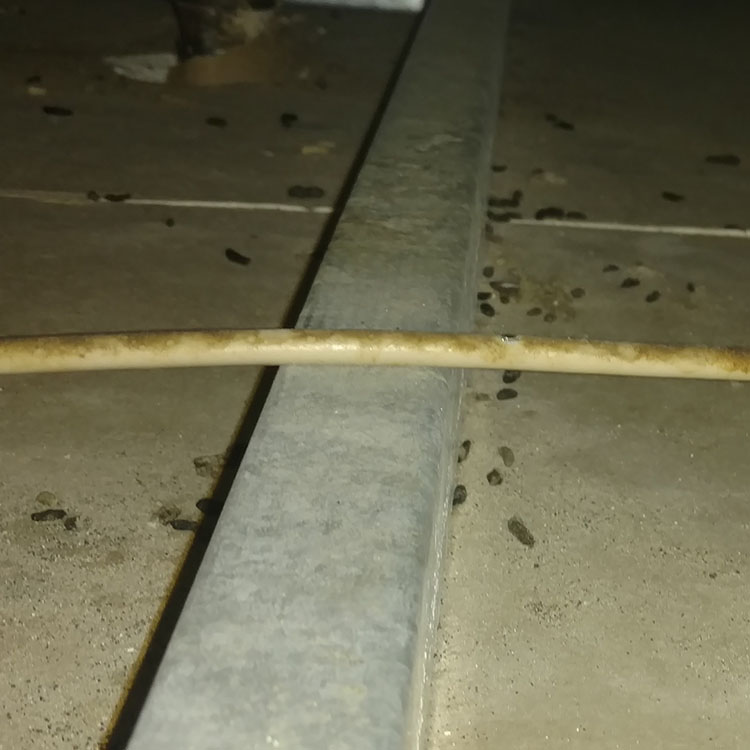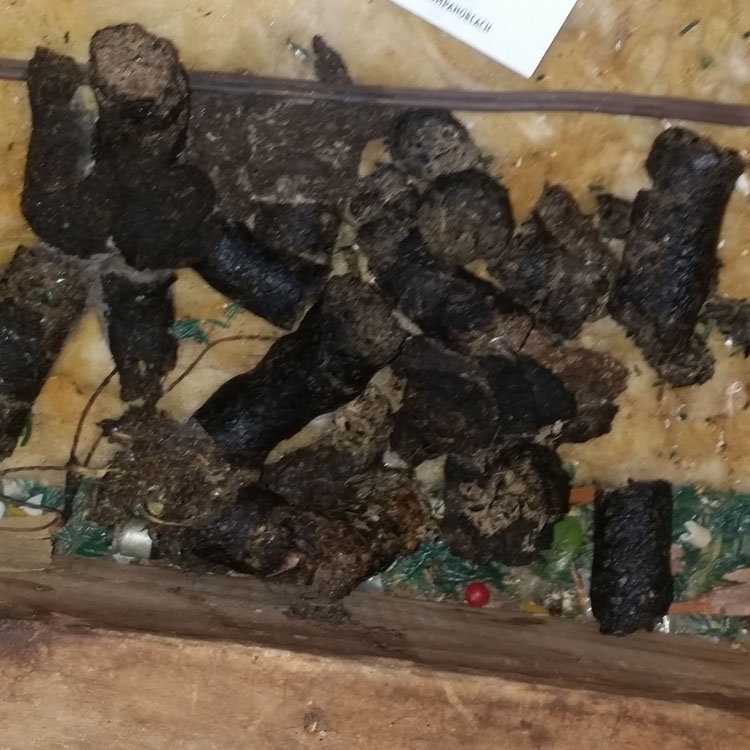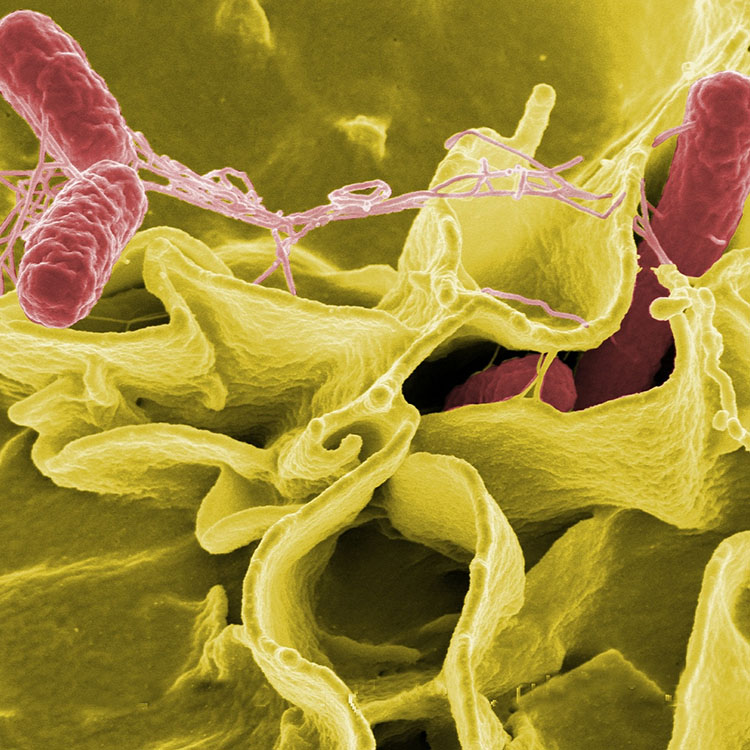Raccoon Poop Photos
Read our guide below about raccoon poop to understand what this animal's feces look like, advice on how to clean up raccoon poop, and what health concerns are associated with this animal's waste. You should also check out our article about raccoon urine as raccoons are likely to use the same space to evacuate liquid waste.

What Does Raccoon Poop Look Like?
Raccoon feces can vary in length but is almost always less than an inch in diameter. Like the waste of nearly all animals, it has a strong odor and can contain all kinds of bacteria, or have the ability to create more bacteria in the area over time. It is not safe to handle and should be approached with extreme caution. If you see household pets, small children, or even adults playing with it or inspecting it, advise them to move away from it immediately and contact a wildlife management specialist to assist you in sanitizing the area.
Where Raccoon Poop is Found
Raccoon poop can be found anywhere that raccoons are living in or where they are traveling. They don't normally leave feces in their trail, but this is not extremely rare. Raccoons are not domesticated animals and will not have a designated place to evacuate their bowels. If you are unsure of what type of animal waste you have found in your garage, attic, barn, or business, this guide should assist you.

Raccoon Poop in the Attic
Raccoons, like other wildlife that creates a nuisance for home owners, will lay waste on insulation, drywall, and the upper side of your ceilings. Home owners are alerted to the presence of raccoon feces by odor most often, but in some cases, they will see mysterious stains on their ceiling from the inside of the house and go into the attic to inspect. Once they find the feces, they may attempt to remove it themselves and sanitize the area. Some home owners even paint over the stains without sterilizing the area. This is not a good idea at all.
Raccoon Poop on the Roof
The roof of your home is a common place to find these droppings if you have a raccoon infestation. Raccoons use the roof to travel to places where there is roof, fascia, or soffit damage, and may have to leave some waste along the way. Because home ownders don't usually inspect their roof with great frequency, they might not find this waste for months, and by that time, it can produce a strong odor and begin to cause damage.
Raccoon Poop on the Ground
Finding raccoon poop on the ground around your home is not always an indication that there are raccoons living inside your home. Much like a household pet, raccoons will use the yard around your home as a bathroom. Make sure that your pets and small children are aware that this is not something to be inspected, played with, or eaten.

Health Risks Associated With Raccoon Feces
Raccoons often leave behind solid and liquid waste at the same time. Raccoon urine, once it interactes with the solid waste or excrement, can transmit Leptospirosis, a disease from the Leptospira bacteria in the urine. Humans and household pets can become infected if this bacteria comes in contact with the skin, nose, throat, eyes, or mouth. If its swallowed, it can cause death in dogs.
Leptospirosis Symptoms
Someone infected with Leptospirosis may experience symptoms similar to the flu. Fever, achiness, and fatigue are common for people infected with this disease. If untreated, liver and kidney problems can persist throughout the lifetime. It's important that you don't try to keep a raccoon as a pet, feed it, or allow them to live inside your home or close to the living spaces on your property. This includes pools and patios because this disease can spread through water.
